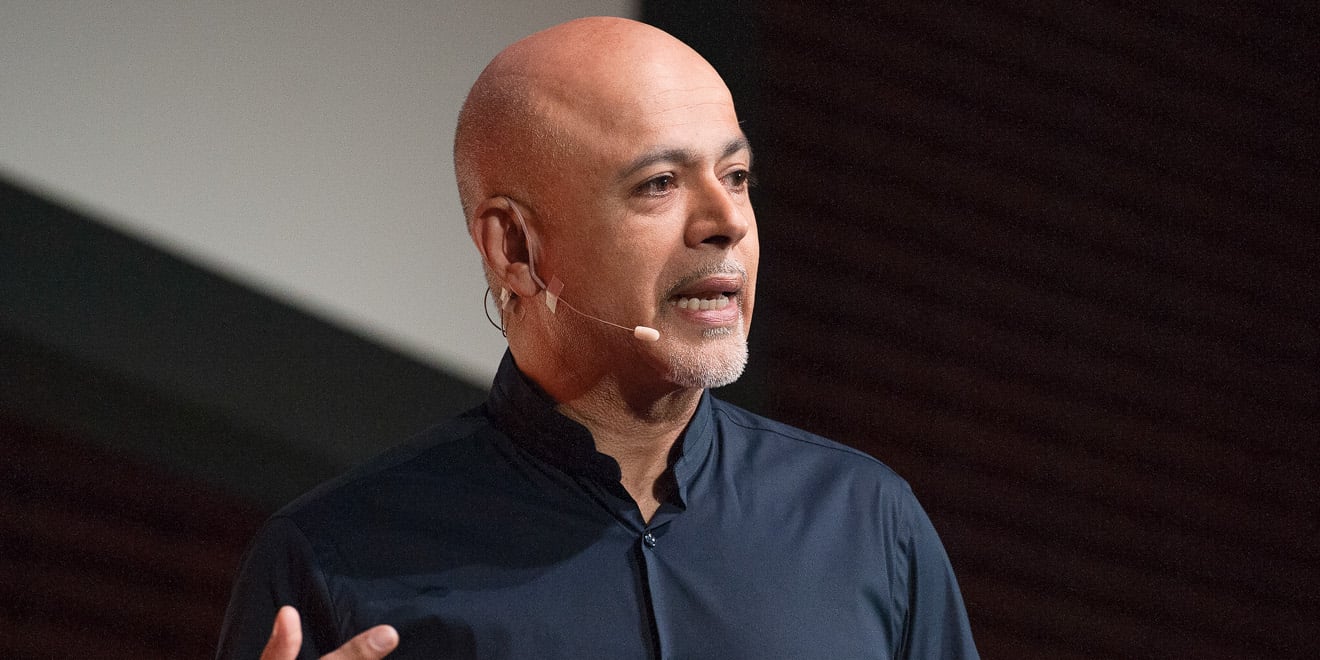Professor of medicine and writer Abraham Verghese was awarded the National Humanities Medal for the 2015 year at the White House on Sept. 22. Awarded annually to a maximum of 12 groups or individuals whose work has “deepened the nation’s understanding of the humanities,” the Medal is regarded as one of the highest humanities accolades in the United States.
Verghese’s career might be called interdisciplinary, but his work as a doctor and as a writer converge naturally in his concern with the humanity at the heart of medicine. From a retelling of his personal experience as doctor in a small town suddenly stricken with AIDS to a fictional story about conjoined twin brothers who become doctors with radically different philosophies, Verghese’s writing draws from his intimate knowledge of and deep identification with the medical profession.
“I don’t really see [writing and medicine] as two different professions,” Verghese said in a 2011 interview with the Daily. “You listen to the patient’s story or history — and what is a history but a story? — and you learn to match stories with your repertoire of stories. When you do the physical, you’re looking at the body as though it’s a text, and you’re trying to read the words of the text.”
The National Endowment for the Humanities (NEH), which awards the medal, honored Verghese’s pervasive empathy in his medical practice and his writing.
According to the NEH website, Verghese received the medal “for reminding us that the patient is the center of the medical enterprise. His range of proficiency embodies the diversity of the humanities; from his efforts to emphasize empathy in medicine, to his imaginative renderings of the human drama.”
Inaugurated in 1997, the National Humanities Medal “honors individuals or groups whose work has deepened the nation’s understanding of the human experience, broadened citizens’ engagement with history, literature, languages, philosophy, and other humanities subjects.” 12 medals were awarded this year, including one to poet and visiting faculty member Louise Glück and another to religious historian Elaine Pagels ’64 M.A. ’65.
“Abraham Verghese is not only an exemplary clinician, he is an exemplary humanist,” said University President Marc Tessier-Lavigne. “Every day in the classroom, he teaches his students that professions such as medicine benefit from an understanding of the human condition. We are so proud that his breadth of scholarship has been recognized with this honor.”
Like the twins in his bestselling novel “Cutting for Stone,” Verghese was born in Addis Ababa, Ethiopia in 1995 to an Indian family. He began his medical training in Ethiopia, worked in the United States as a hospital orderly, then completed his education in India at Madras Medical College. Unlike many doctors, he also took time off to earn a Masters in Fine Arts from the prestigious Iowa Writing Workshop in 1991 before joining the Stanford School of Medicine in 2007.
Verghese said of his own work, “My ambition as a writer was to tell a great story, an old fashioned, truth-telling story. But, beyond that, my single goal was to portray an aspect of medicine that gets buried in the way television depicts the practice: I wanted the reader to see how entering medicine was a passionate quest, a romantic pursuit, a spiritual calling, a privileged yet hazardous undertaking.”
Contact Fangzhou Liu at fzliu96 ‘at’ stanford.edu.
